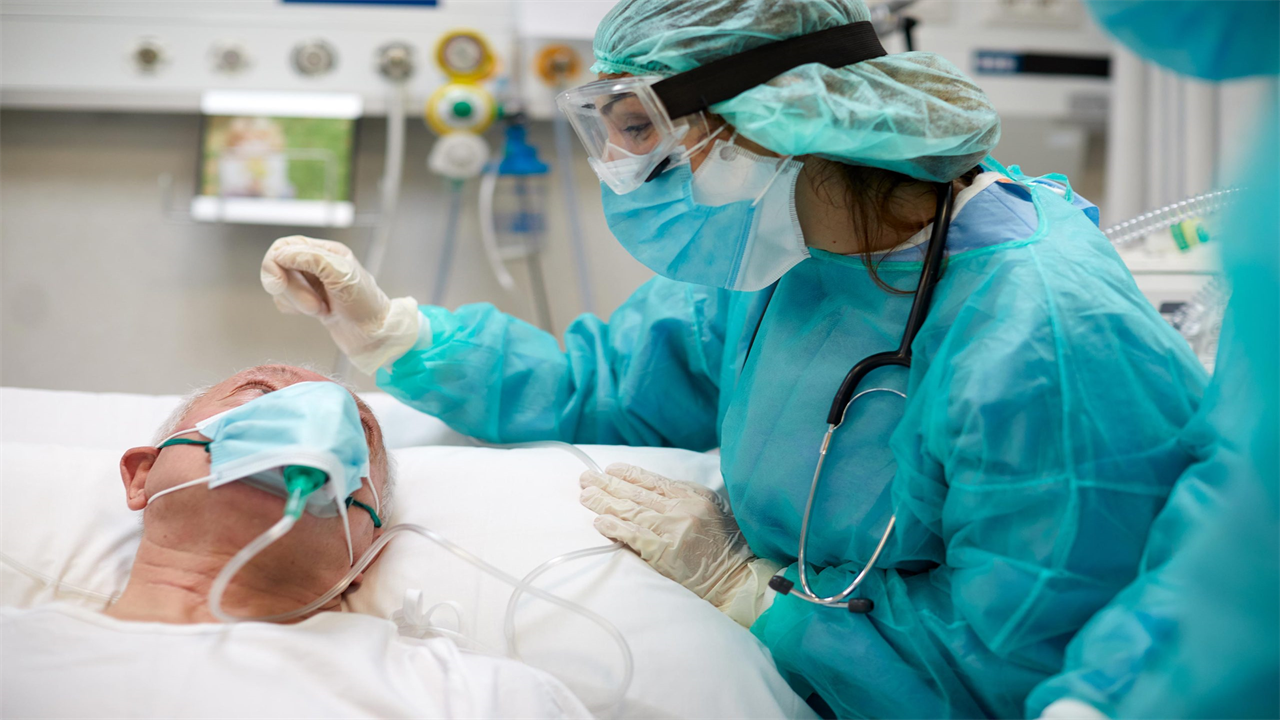Hospitals Have Ethical Obligation To Care for Unvaccinated-by-Choice COVID-19 Patients
0 View
Share this Video
- Publish Date:
- 5 December, 2021
- Category:
- Covid
- Video License
- Standard License
- Imported From:
- Youtube
Tags

Priorities for the care of patients, regardless of vaccination status. Credit: ATS
A new op-ed published online in the Annals of the American Thoracic Society offers a comprehensive examination of the ethics of using hospital resources in unvaccinated COVID-19 pneumonia patients of choice, versus patients with other serious illnesses who do not have the disease. progressing so fast.
In “Caring for the Unvaccinated,” William F. Parker, MD, PhD, assistant professor of pulmonary and critical care medicine and assistant director, MacLean Center for Clinical Medical Ethics, Pritzker School of Medicine, University of Chicago, looked at cases where hospitals slowed down time-sensitive and medically necessary procedures for vaccinated adults when flooded with unvaccinated patients with severe, life-threatening COVID-19 pneumonia and proposed an ethical framework to triage these patients.
“These vaccinated patients are directly harmed when hospitals use all their resources to care for the many unvaccinated patients with COVID-19,” he writes. “For example, delaying breast cancer surgery by just four weeks increases the relative risk of death from the disease by 8 percent.”
dr. Parker advocates an emergency response standard that prioritizes emergency life support, regardless of vaccination status, to save the most lives. “Simply rejecting the use of vaccination in prioritizing medical resources without analysis ignores the very real trade-offs that come into play during a pandemic. The pain and suffering of the vaccinated from delayed medical care requires a deeper defense of care for the unvaccinated.”
Eliminating the double standard that harms patients in vulnerable communities
He states: “While the vast majority of patients who develop life-threatening COVID pneumonia are unvaccinated, hospitals still have ethical obligations to expand capacity and focus surgeries on caring for them — even if it means vaccinated patients have to wait for important but less urgent care such as cancer and heart surgery.”
“If tertiary care centers turn inward and stop taking transfers of COVID-19 patients from overburdened community hospitals, it will result in de facto triage in favor of lower benefit care and systematically harm both vaccinated and unvaccinated people. vaccinated in vulnerable communities,” he said. adds. “Hospitals must justify their non-profit status by accepting transfers and prioritizing life-saving care during a pandemic wave.”
He points to Los Angeles County during the winter wave, in which the public health department had to issue an order that forced elite hospitals to stop performing financially lucrative elective procedures and accept patient transfers from community hospitals that were unable to handle all of the COVID-19. can. patients requiring intensive care.
Reciprocity and proportionality
The principle of reciprocity supports a possible decisive role for vaccination status when two patients have an equivalent survival benefit from a scarce health care resource. However, universal exclusion of unvaccinated people from life support during a pandemic wave is failing, according to Dr. parker.
Reciprocity is rewarding one positive action with another. An example of this principle is giving vaccinated people access to sports or entertainment events that are prohibited for the unvaccinated (even if the unvaccinated test is negative for COVID-19). Proportionality is the principle that “reimbursement” should be proportionate to the size of the act. Living kidney donors, for example, are placed far on the waiting list, the equivalent of four years of waiting time for dialysis. This complies with the proportionality principle.
dr. Parker points out that while the 8 percent increased relative risk of death from delaying breast cancer surgery is appalling, the absolute increase in risk is only one in 100, and perhaps only one in 200 for a two-week delay.
“After the peak is over, the hospital can catch up on delayed elective surgeries,” he writes. “The harm from a coronary artery bypass or cancer surgery delayed by two weeks is real, but small compared to certain death from refusing life support for respiratory failure.”
He concludes: “There is a defensible role for vaccination status in triage as a limited tiebreaker, not as a categorical exclusion, but only in the context of a well-defined and transparent triage algorithm. Despite enormous financial pressure to do otherwise, elite academic centers are required to prioritize emergency life support in order to save as many lives as possible during COVID-19 peaks.”
Reference: “Caring for the Unvaccinated” by William F Parker, Nov. 19, 2021, Annals of the American Thoracic Society.
DOI: 10.1513/AnnalsATS.202109-1039IP










